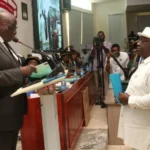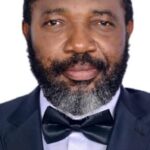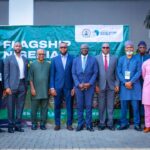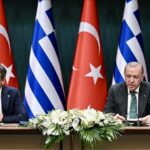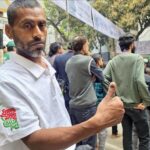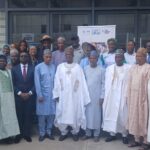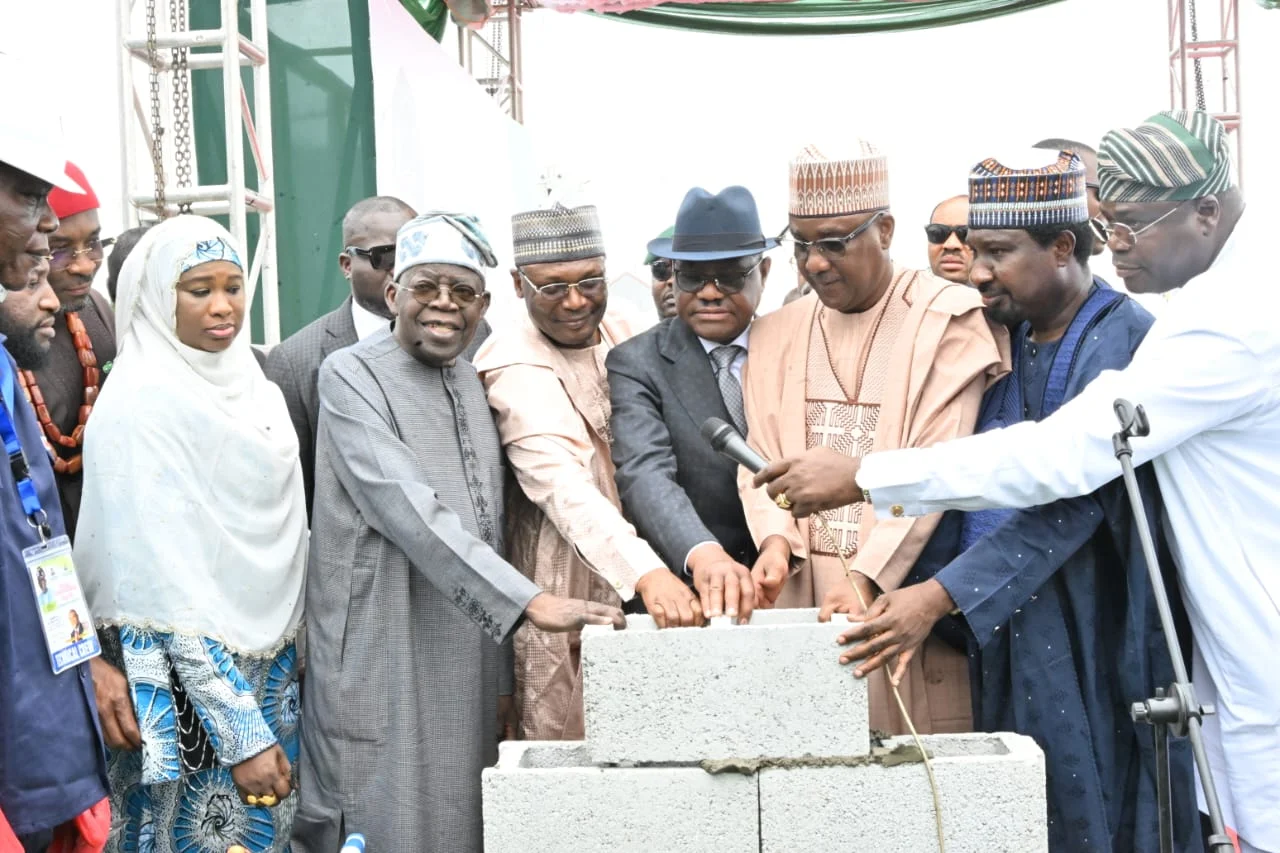By Emmanuel Oloniruha and Phillip Yatai
President Bola Tinubu says the Independent National Electoral Commission (INEC) remains the backbone of Nigeria’s democratic journey.
Tinubu stated this on Tuesday while inaugurating the construction of a new INEC Annex Office to complement its current headquarters in Abuja.
He said that the construction of the building was part of his administration’s effort toward strengthening Nigeria’s democracy, independence of institutions and the future of the nation’s electoral integrity.
The president pledged his administration’s commitment to ensuring that INEC was fully equipped to carry out its constitutional mandate.
According to him, INEC’s roles in conducting free, fair and credible elections are central to the trust people placed in the government and the nation’s democratic process.
“For this reason, it is only right that such an institution is housed in a structure that reflects the dignity, responsibility and national significance of that institution.
“The new headquarters is a clear signal of our unwavering support for INEC autonomy, capacity and growth.
“It will provide, not just a conducive home, but a home for innovation planning, training and transparency in electoral administration.
“We are committed to ensuring that INEC is fully equipped, not only in infrastructure, but in law, policy and resources to carry out its constitutional mandate with courage, fairness and excellence,” he said.
Tinubu commended the Minister of the Federal Capital Territory (FCT), Nyesom Wike, for initiating the project, describing it as another important step toward the protection of democracy in Nigeria.
“To all Nigerians, I say this democracy is not a destination, but a journey. Together, let us strengthen our institutions, safeguard our freedom and protect the future,” he said.
In his remarks, the INEC Chairman, Prof. Mahmood Yakubu, said that the commission had been grappling with inadequate office accommodation for a long time.
Yakubu stated that the current INEC national headquarters, inaugurated in December 1997, had become ‘severely congested’.
He said that the headquarters was initially planned to cater for eight commission members – the chairman, seven full-time national commissioners, 10 departments/directorates and 500 staff members.
“Since then, the activities of the commission have become more extensive and the staff strength at the headquarters has more than doubled.
“Today, there are 13 full-time commission members – a chairman and 12 national commissioners, 22 departments/directorates and 1,048 staff.
“Consequently, every facility is overstretched from offices to meeting rooms for the commission’s 15 standing committees and other activities, including regular engagements with stakeholders.
“General staff meetings always take place outside the commission and, in response, the commission was compelled to rent two buildings in Wuse Zone II to ease the situation.
“Over the last 10 years, we made every effort to alleviate the situation until sometime last year when the FCT administration came to the rescue,” he said.
Yakubu commended Tinubu and the FCT administration for their support in addressing the problem of inadequate facilities facing the commission.
He, however, dismissed concerns about why FCTA was building an office for a commission that was supposed to be independent.
He pointed out that this was not the first time that FCTA was constructing an office for the commission, but the third time in the last 34 years.
The INEC chairman said that when the commission relocated its headquarters from Lagos to Abuja in 1991, it was the Federal Capital Development Authority (FCDA) that provided it with offices in Garki to accommodate the headquarters.
“When the facility became overstretched, the FCDA again built our present headquarters. The building in Garki now operates exclusively as our FCT office,” he said.
According to him, the building plan has provisions for a museum to serve as a repository for the physical and digital history of elections and electoral activities in Nigeria.
“This will afford citizens, particularly students that regularly visit the commission on excursion, the opportunity to appreciate the evolution of our electoral history as is the case in many jurisdictions around the world,” he said.
Yakubu said that INEC’s main building would remain the commission’s national headquarters, while the new building would complement the main building.
On his part, the FCT minister explained that the project was awarded by the Federal Executive Council (FEC) in March 2025 to be supervised by the FCDA.
Wike added that it was part of the renovation and construction of public buildings approved by FEC to reduce the shortage of accommodation.
He assured Tinubu that the project would be given the needed attention to ensure its completion before the end of his tenure.
Earlier, the acting Executive Secretary of FCDA, Mr Richard Dauda, said that the building on Plot 442, Maitama District, Zambezi Crescent, Off Aguiyi Ironsi Way, would occupy 1.5 hectares.
Dauda said that the scope of the works included the construction of a five-storey building with basement parking, media centre, library, museum and various meeting rooms.
Others, he said, were security control room and office accommodation for the management of INEC as well as some key departments.
“There will also be a 1,000-capacity auditorium on three levels, along with other ancillary facilities,” he said. (NAN)
Edited by Abdulfatai Beki/’Wale Sadeeq


